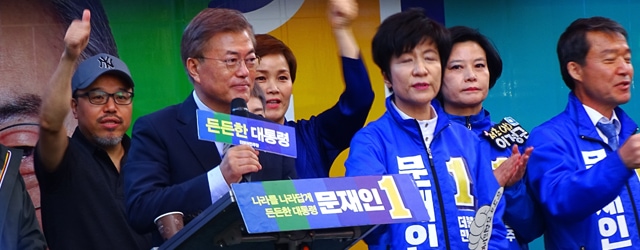Moon’s victory was widely expected after the impeachment of former president Park Guen-hye, the candidate to whom he narrowly lost in the previous election, in 2012.

Civil- and human-rights lawyer and former student activist Moon Jae-in won a presidential election on May 9, becoming the 12th person to serve as president of South Korea. Moon’s victory was widely expected after the impeachment of former president Park Guen-hye, the candidate to whom he narrowly lost in the previous election, in 2012.
Less clear is what Moon, 64, and his government are going to change in the delicate relationships with neighboring North Korea and with the two international players involved, China and the United States. During the electoral campaign, Moon often urged a more collaborative approach toward the Democratic People’s Republic of Korea, even at the expense of good relations with the US.
“The win certainly tips the pendulum toward China, as he is seen as someone who is more conciliatory toward North Korea and China,” says Trinh Nguyen, Asia senior analyst at investment bank Natixis. “We do not think the relationship with the US will materially change. President Moon Jae-in is certainly less hawkish than Park and is likely to tread carefully with China, as its relationship is important for South Korea in terms of economics as well as security issues regarding North Korea. In other words, there is a shift but it is not a tectonic one, and China certainly emerges as a winner.”
Moon’s ambitions for rapprochement with North Korea may prove difficult. “He has pledged to resume dialogue and revive economic cooperation with the North and to persuade Pyongyang to abandon its nuclear and ballistic missile programs,” says consultant Verisk Maplecroft in its latest Geopolitical Risk Outlook, released in May. “The likelihood of Kim Jong-un agreeing to give up his nuclear arsenal—the only guarantee of regime survival—is virtually nonexistent, regardless of the economic or other incentives on offer. The best Moon can hope is that the fresh approach can help him to manage tensions better than his predecessor.”
Regarding economic policy, Moon is not seen as likely to implement the radical changes that he has promised, with voters tired of dull economic growth, initiatives slowed by an aging population and the conservative attitude of a mixture of political and economic powers. One of his announced goals is to create 810,000 public-sector jobs through raising taxes on the wealthy.
“With a 40% majority in parliament, passing any reform will prove to be very difficult,” says Krystal Tan at Capital Economics in Singapore.



